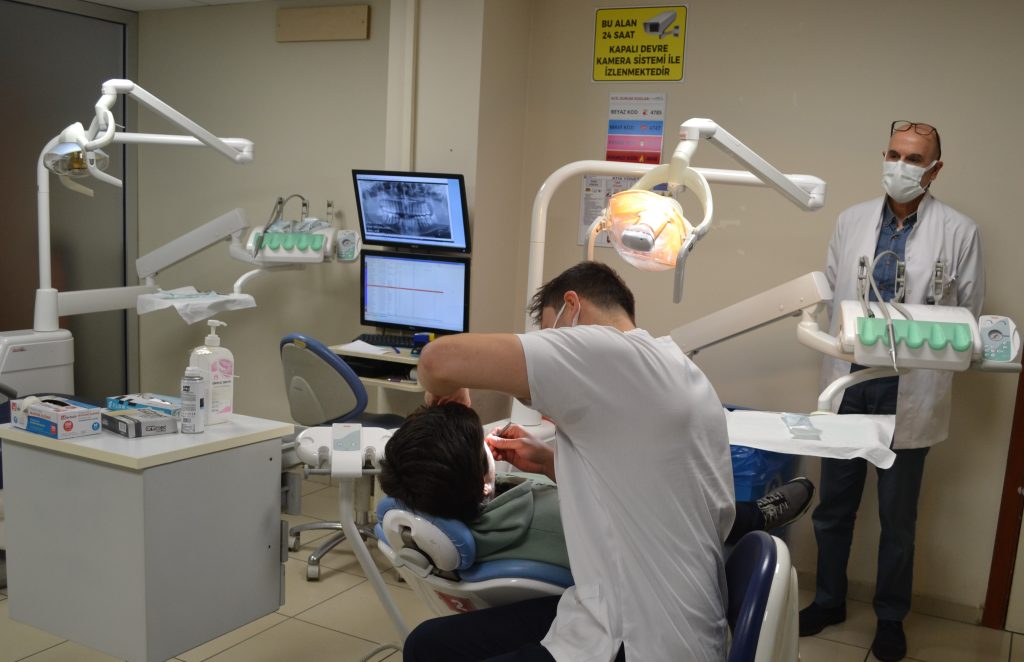As crucial members of the interprofessional team, surgical technologists work closely with surgeons to perform complex procedures safely and efficiently. What role can simulation play in developing the skills of these professionals? How can simulation contribute to patient safety? Two technologists explain.
The training of surgical technologists is essential in modern medical care. As professionals in the interprofessional team, they play a crucial role in the operating theatre, working closely with surgeons to perform complex procedures safely and efficiently. With increasingly complex surgeries, the demand for surgical technologists is becoming more and more demanding, requiring a higher level of training. This is why simulation has become a fundamental ally in the training of these professionals.
Simulation provides a controlled and safe environment where healthcare professionals can practice and hone their skills without risk to patients.
The simulation learning strategy, supported by numerous research studies, plays a crucial role in improving the safety and efficacy of medical procedures, thus contributing to optimal performance in the operating room.
Is there specific simulation training for surgical technologists, as well as for other specialties in the healthcare team?
When reviewing various articles on simulation in surgical instrumentation, Spanish-language articles, we find mainly research from Colombia, Spain and Argentina. These mainly focus on simulation for undergraduate students, addressing fundamental competencies such as hand washing, draping and surgical table preparation.
Surgical instrumentation is much more than washing hands and setting up an instrument table.
What is the role and what are the challenges of surgical technologists in their work?
The surgical instrumentist plays a key role in the surgical team by preparing the essential elements for the procedure, assisting the entire interprofessional team involved, and ensuring the well-being of the patient from the time they enter the operating room to the time they leave for the recovery room.
Their ability to anticipate the surgeon’s needs and their skill in handling surgical instruments are crucial to the success of any procedure.
One of the most remarkable aspects of surgical technologists is their ability to remain calm under pressure. In the operating theatre, situations can become intense, and therefore they must be able to maintain concentration and temperance at all times, which is critical to ensure patient safety and procedural efficiency.

What can be the Impact of Simulation on Surgical Training?
All of these competencies require training, and simulation emerges as an optimal educational methodology for this purpose, following common practice as performed by doctors and nurses.
Non-technical skills, although often overlooked, are essential for any surgical technologist and play a crucial role in their performance.
It would be appropriate to start working on simulation training in some of these skills:
- Effective communication: A surgical technologist must be a skilled communicator. Communication deficiencies can arise due to professional hierarchies and lack of assertiveness, and their complexity increases with factors such as fatigue and interruptions.
- Teamwork: working on this non-technical skill, from pre-graduate level, will ensure better integration with the rest of the surgical team, and if we do it in an interdisciplinary way, we reduce the gap of differences in communication training between team members.
- Conflict resolution: on occasion, disagreements may arise and they must be able to handle these situations diplomatically and effectively, always prioritising the patient’s welfare.
- Situational awareness: being aware of all relevant aspects, such as the patient, the timing and organisation of instruments and supplies, and the team, is achieved by observing and listening carefully, interpreting signals and anticipating possible events during surgery.

So what needs to be done?
Undoubtedly, the role of surgical technologists in the surgical team is decisive. Their role ensures that the interprofessional team has access to everything necessary for a successful surgery.
Therefore, it is paramount that these professionals are properly trained and simulation-trained to perform their role in the most effective manner, for the well-being and safety of the patient and their surgical team.
It is therefore essential that such training programmes are properly documented. This is not only so that surgical technologists can be integrated into scientific simulation societies, but also in order to evidence and support the work that is carried out in this field.
In this way, the consolidation of a community of surgical technologists committed to the advancement and excellence in the practice of simulation is encouraged.
READ ALSO














































